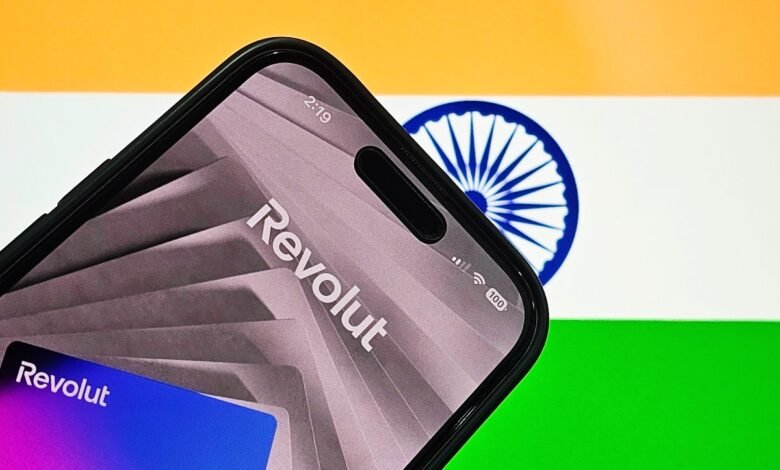Revolut Declares War on India’s ‘Criminal’ Forex Fees

▼ Summary
– Revolut identifies cross-border payments as underserved in India, where Indians spend $30 billion annually overseas and lose $600 million to bank fees.
– The fintech secured Indian regulatory licenses including a PPI license and acquired Arvog Forex to offer remittance, multi-currency accounts, and UPI integration.
– It targets 20 million users by 2030 among digitally native Indians aged 25-45, focusing on transaction volume and profitability over user count.
– Revolut will provide full-KYC wallets with global sanctions checks, prepaid cards, budgeting tools, and kids’ accounts to attract high-intent customers.
– The company faces competition from banks and fintechs like Niyo and Fi, despite having infused $45 million and localizing its tech stack for India.
The British financial technology firm Revolut is making its official entry into the Indian market, positioning itself as a challenger to what it describes as excessive foreign exchange fees charged by traditional banks. According to the company, Indian residents spend roughly $30 billion abroad annually, with an estimated $600 million lost to what Revolut’s India CEO, Paroma Chatterjee, labels “criminal” bank charges. She points out that foreign exchange services have long been dominated by banks, which impose substantial fees on currency exchange and travel cards.
Revolut has been preparing for its India debut since 2021, identifying major gaps in the country’s foreign exchange and conventional payment systems. To support its launch, the London-based fintech acquired Arvog Forex in 2022, securing the necessary license for remittance and multi-currency account services. This year, in April, Revolut also obtained a prepaid payment instrument license from the Reserve Bank of India, authorizing it to issue prepaid cards, operate digital wallets, and connect with India’s Unified Payments Interface.
These regulatory milestones allow Revolut to compete directly with established banks and other fintech providers. The company is focusing on a target audience of more than 150 million digitally savvy Indians between the ages of 25 and 45, with a goal of enrolling 20 million users by 2030 and processing at least $7 billion in transactions. Chatterjee emphasized that holding these licenses enables Revolut to design a more distinctive customer experience compared to competitors relying on banking partnerships.
Indian customers will gain access to a prepaid wallet compatible with UPI, along with Revolut-branded UPI handles. The platform will also offer a domestic Visa card and an international multi-currency Visa card. Additional features will include specialized accounts for children and teenagers linked to parental profiles, subscription-based services, and budgeting and analytics tools that help users track their spending.
Revolut has regulatory clearance to process both domestic and international payments and transfers. It is also approved to offer same-day remittances from India via a local banking partner.
In contrast to many Indian fintech companies that use minimal know-your-customer checks for quick user onboarding, Revolut will require full-KYC wallets. New users will be screened against global sanctions lists, including those managed by the Office of Foreign Assets Control and the United Nations. Chatterjee explained that this thorough process is intended to attract serious customers willing to complete detailed verification, such as Aadhaar and video identification.
She stressed that the number of app downloads is not Revolut’s primary success metric. Instead, the company will measure performance based on user engagement, transaction volume, and profitability. Chatterjee highlighted that Revolut serves 65 million customers across 39 countries, processing over $4 billion in transactions and generating more than a billion dollars in profit, with more than 25 million active users monthly.
A recent secondary share sale increased Revolut’s valuation to $75 billion, up from $45 billion last summer. In India, the company has already built a waitlist exceeding 350,000 people, whom it intends to onboard later this year before opening registration to the general public. The final launch schedule will depend on how quickly the waitlist is processed and customers complete KYC and anti-money laundering checks.
Revolut is also evaluating partnerships beyond Visa, including with the Indian government’s RuPay network, to give customers more payment options. The company has invested $45 million to initiate operations in India and adapt its technology to comply with local data sovereignty laws, with further investment planned as services expand.
Out of Revolut’s global workforce of 10,000 employees, approximately 3,500 are based in India, making it the company’s largest operational hub worldwide. Many of these employees also contribute to products and features offered in other international markets.
Despite its ambitious strategy, Revolut will face competition in India from both traditional banks and established fintech players such as Niyo, Scapia, Fi, and BookMyForex, all of which are already active in the cross-border and remittance sector.
(Source: TechCrunch)
